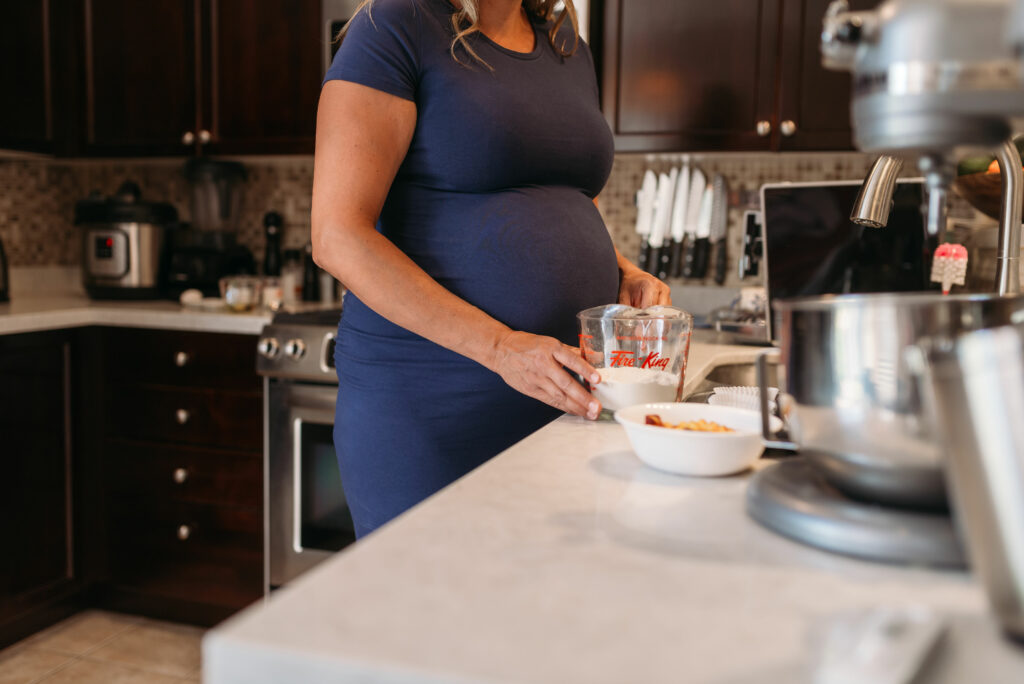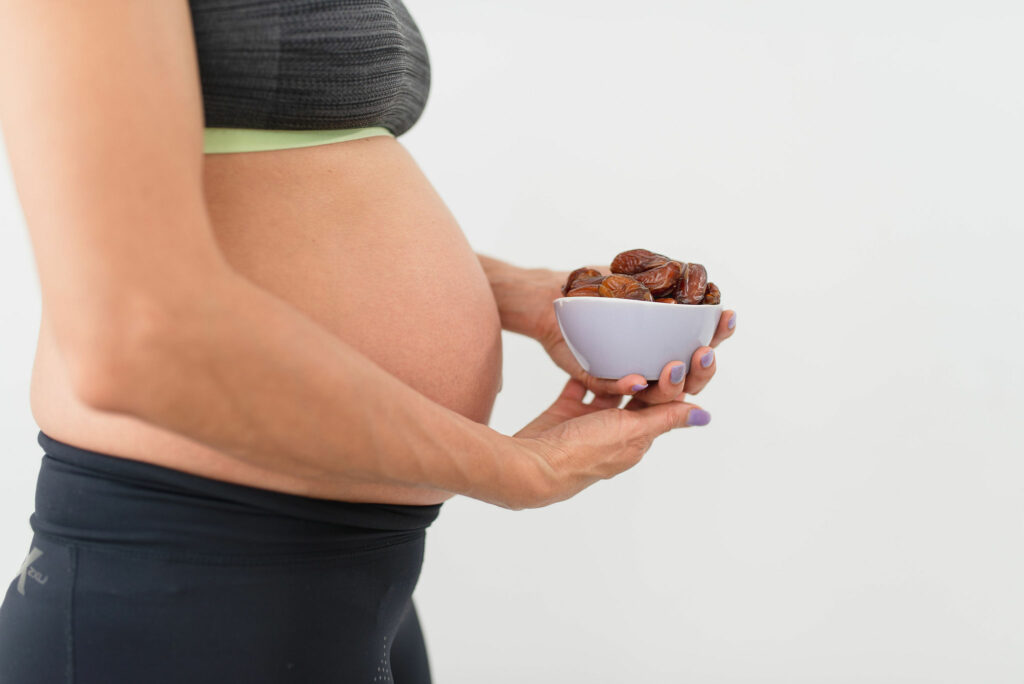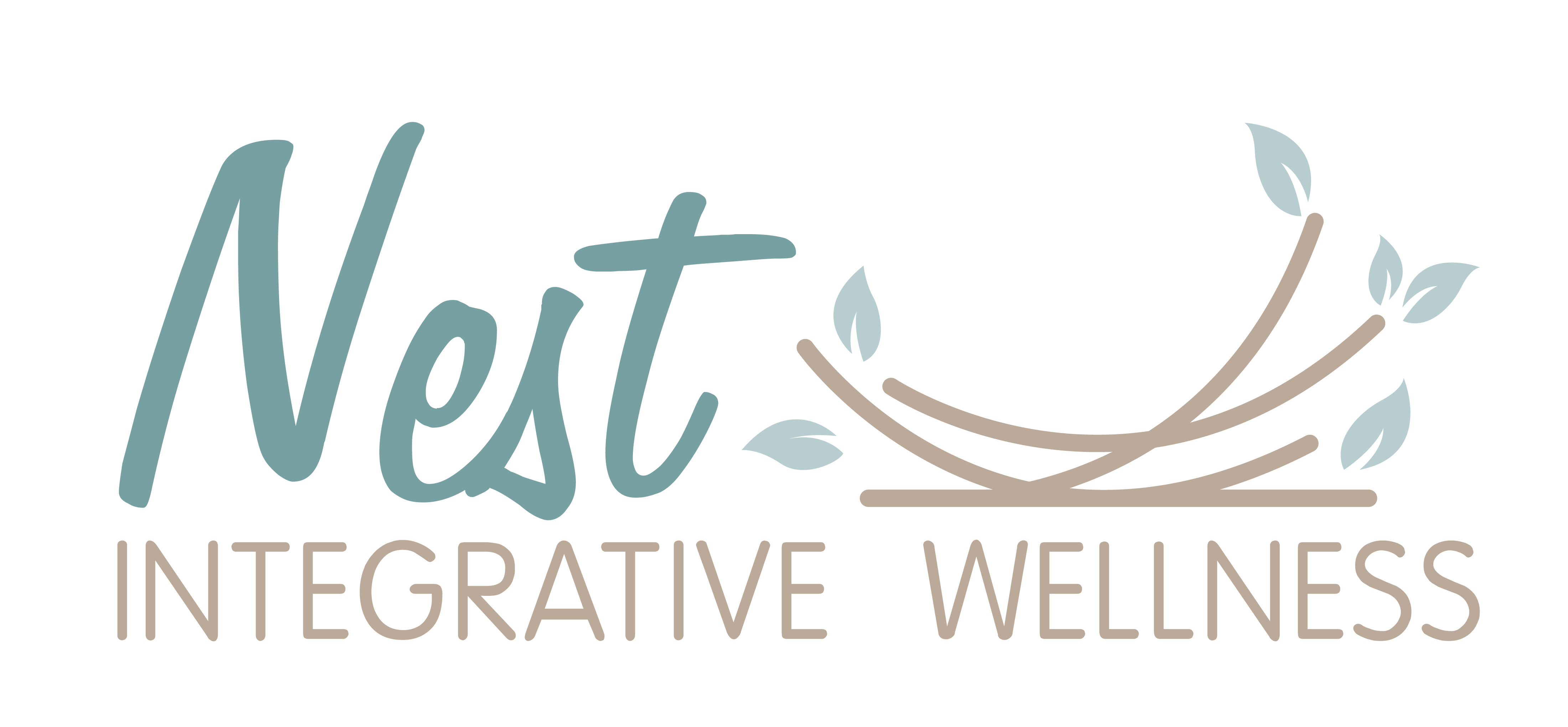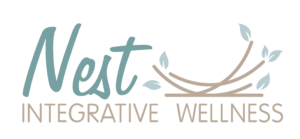Nutrition and Maternal Mental Health
Written by Halah Alareeki (RD) for Nest Integrative Wellness
Pregnancy and the fourth trimester (early postpartum) can be a beautiful time welcoming a new baby. It can also bring many emotions including the common postpartum mental health challenges. There are many factors that affect the risk of developing postpartum depression which may not be in the mother’s control. Aiming for a balanced and nutrient-rich diet can help support proper brain, hormone and immune functions.
Adding nutrition with key nutrients to your diet can help support optimal mental health. Here are some important nutrients during pregnancy and postpartum that can support your mental health.

Iron and Maternal Mental Health


Pregnant women are at higher risk of low iron levels and iron deficiency. This is mainly due to the increased need of iron during pregnancy for making blood to supply baby with oxygen. It is also needed for the production of chemicals that support the nervous system.
The symptoms of iron deficiency can include:
- increased maternal fatigue
- palpitations
- lightheadedness
- difficulty sleeping
- mood disturbances
Focus on iron rich foods during pregnancy to meet your needs, such as:
- lean meats
- liver
- lentils
- beans
- cooked spinach
- shellfish
- nuts and seeds
Make sure to have your iron levels rechecked in the postpartum period as well. Ensuring adequate iron levels in the body can help reduce the risk of mood disturbances and support cognitive function whether in pregnancy or postpartum.
Vitamin D and Maternal Mental Health
Vitamin D has great benefits in pregnancy such as supporting calcium absorption for maintaining bone health, supporting the immune system, brain and regulating mood. Lower levels of vitamin D can increase the risk of depression and low energy in both pregnancy and postpartum.
Other than sunlight, some food sources of vitamin D include:
- fortified milk and soy beverage
- egg yolks
- fatty fish like salmon and sardines
However, most people’s diets are low in vitamin D and sunlight exposure isn’t regular in some regions. Therefore, supplementation may be needed.

Omega 3 and Maternal Mental Health


We know how important it is to include omega 3 fats during pregnancy for baby’s brain, eye and nerve development. The main Omega 3 sources, EPA and DHA types, are also key for the mother’s mental health during pregnancy and postpartum. EPA and DHA’s anti-inflammatory properties, reducing oxidative stress and supporting gut health, can help decrease the risk of mental health disorders. Omega 3s also support the production of brain hormones.
Ensure to aim for a minimum of 2 servings of fish per week to meet your omega 3 needs. Highest amounts of omega 3 are found in:
- salmon
- sardines
- mackerel
- herring
- rainbow trout
Plant-based omega 3 can be found in:
- walnuts
- chia seeds
- flax seeds
Keep in mind, the body only converts a small amount of the plant-based omega 3 (ALA) into DHA and EPA. Therefore if you are struggling to get enough fish in your diet or do not consume fish, you may require a supplement.
Nest Integrative Wellness is Here to Support Your Mental Health
Prioritizing your nourishment in pregnancy and postpartum can have a great impact on your mental health and emotional wellbeing. Reach out to our Registered Dietitian Halah to help support and guide you in finding the right nourishment for you and your family.








